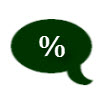 Shmuel Shayowitz (NMLS#19871) is President and Chief Lending Officer at Approved Funding, a privately held local mortgage banker and direct lender. Shmuel has over two decades of industry experience, including licenses and certifications as a certified mortgage underwriter, residential review appraiser, licensed real estate agent, and direct FHA specialized underwriter. Shmuel provides a uniquely holistic approach to comprehensive real estate and financial matters that goes well beyond any single transaction. Shmuel is an award-winning financier recognized for maximizing the short-term and long-term objectives of his client. As a contributing writer to many local and regional newspapers and publications, his insights have been featured in the media for many topics, including mortgages, personal finance, appraisals, and real estate trends.
Shmuel Shayowitz (NMLS#19871) is President and Chief Lending Officer at Approved Funding, a privately held local mortgage banker and direct lender. Shmuel has over two decades of industry experience, including licenses and certifications as a certified mortgage underwriter, residential review appraiser, licensed real estate agent, and direct FHA specialized underwriter. Shmuel provides a uniquely holistic approach to comprehensive real estate and financial matters that goes well beyond any single transaction. Shmuel is an award-winning financier recognized for maximizing the short-term and long-term objectives of his client. As a contributing writer to many local and regional newspapers and publications, his insights have been featured in the media for many topics, including mortgages, personal finance, appraisals, and real estate trends.
As if there wasn’t already enough going on within the United States economy to start a busy year – this week we got some more news. We started the eventful first full week of the year, getting news of Bank of Japan’s decision to reduce the amounts of government bonds it is buying as part of their quantitative easing efforts. This is very much in-line with similar policy here in the U.S. The announcement prompted speculation that the Japanese central bank is getting ready to end their age of ‘ultra-loose’ monetary policy. That sent the yen and Japanese bond yields higher, and also caused an immediate spike in the 10-year US treasury.
If that wasn’t enough to keep traders on guard, following the Japanese announcement, rumors began to circulate from China. The word on the street was that China is considering “slowing or halting” purchases of U.S. Treasuries. As most are aware, China is the world’s biggest foreign holder of U.S. Treasuries. On the one hand, it could very well be that the market for U.S. government bonds is becoming less attractive relative to other domestic or foreign comparable assets. Conversely however, trade tensions with the U.S. may also be prompting a reason to threaten a decrease or boycott of American debt buying. Time will tell as this unfolds.
The protentional for a reduction in Chinese purchases would come just as the U.S. prepares to boost its own supply of new debt. In its most recent quarterly statement at year end, the Treasury Department said their borrowing needs will increase as the Federal Reserve reduces its own domestic balance sheet. Globally, one of the highly debated economic risks for 2018 was the international bond markets – and specifically European bonds. Traders were hoping they had more time to deal with the dismal European bond market, but with the announcements from China and Japan, U.S. bond traders are positioning for what they fear could be the end of a three-decade bull market.
Yields were already climbing this week with the speculation that an improving global economy will boost inflation pressures in the US and abroad, as major central banks weigh their asset repurchase strategies. However, within the few days of these international stories, the yields on the 10-year US treasury rose by about 20 basis points. We have not seen these levels since a few days in March 2017, and briefly in December 2016. As I have written about in the past, inflation is the most important metric for the Federal Reserve in determining the health and outlook of our economy. With the lack of inflation materializing thus far, in spite of all the money-printing in the U.S., the Federal Reserve seems determined to push inflation – and bonds higher.
For anyone who lived through the period of high inflation in the late 1970s and early 1980s, they surely remember prices spiraling out of control. Fortunately, or unfortunately, the Fed sees inflation as a barometer of economic growth. As long as it’s advancing moderately, it’s not only a sign of a healthy economy but also a signal to consumers of that sentiment. That in turn encourages consumers to shop and borrow before prices rise further. The theory goes, that this keeps the economy moving…in theory. The flip side to that is…well, let’s not discuss that.
The advice here is for anyone who has not adequately evaluated their finances – and the risks of an increase in rates – (be in credit card debts, home-equity loans, or the like) – this would be a suitable time to be in contact with a financial professional to see what you should be considering. Shout-out to all the amazing real estate professionals and experts who participated in our incredible market commentary. See the inside back cover for more details!
To learn more about Shmuel Shayowitz, click here or complete this form to be connected with Shmuel:


















